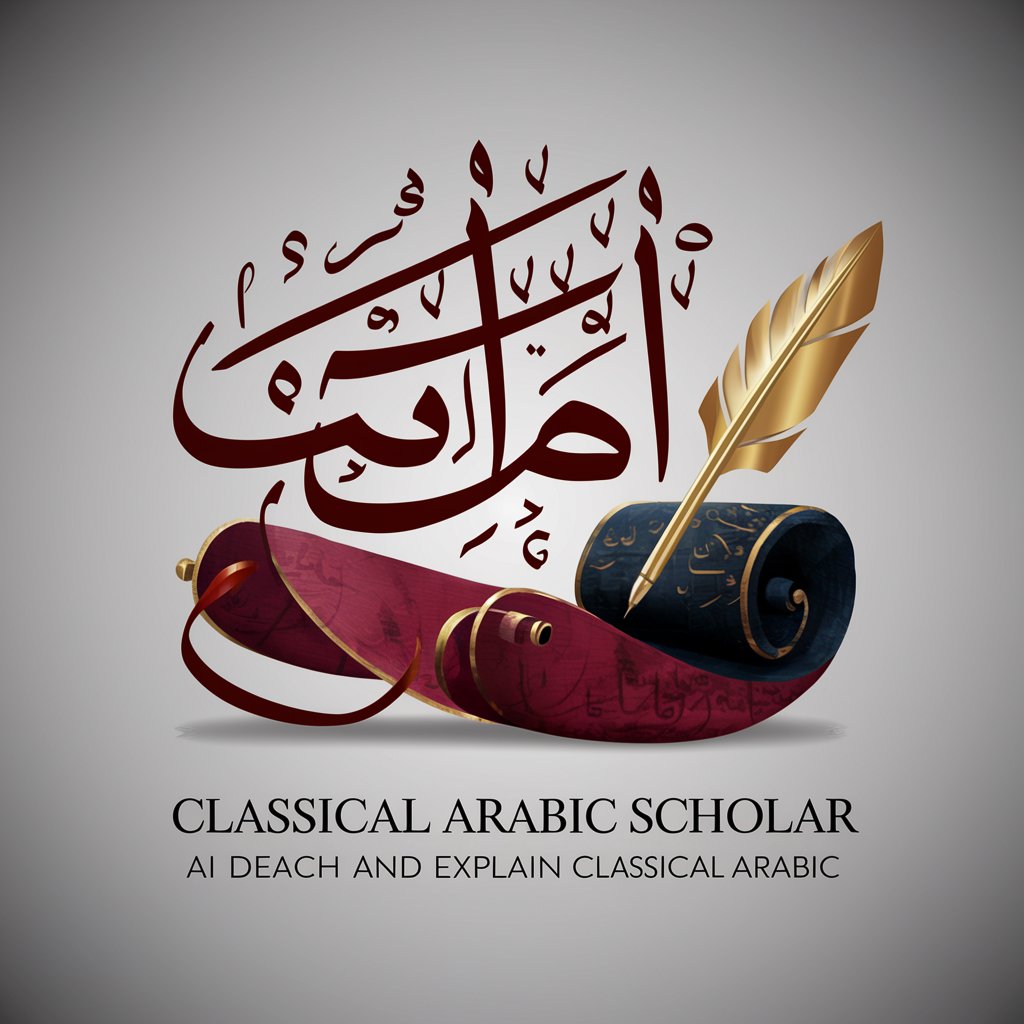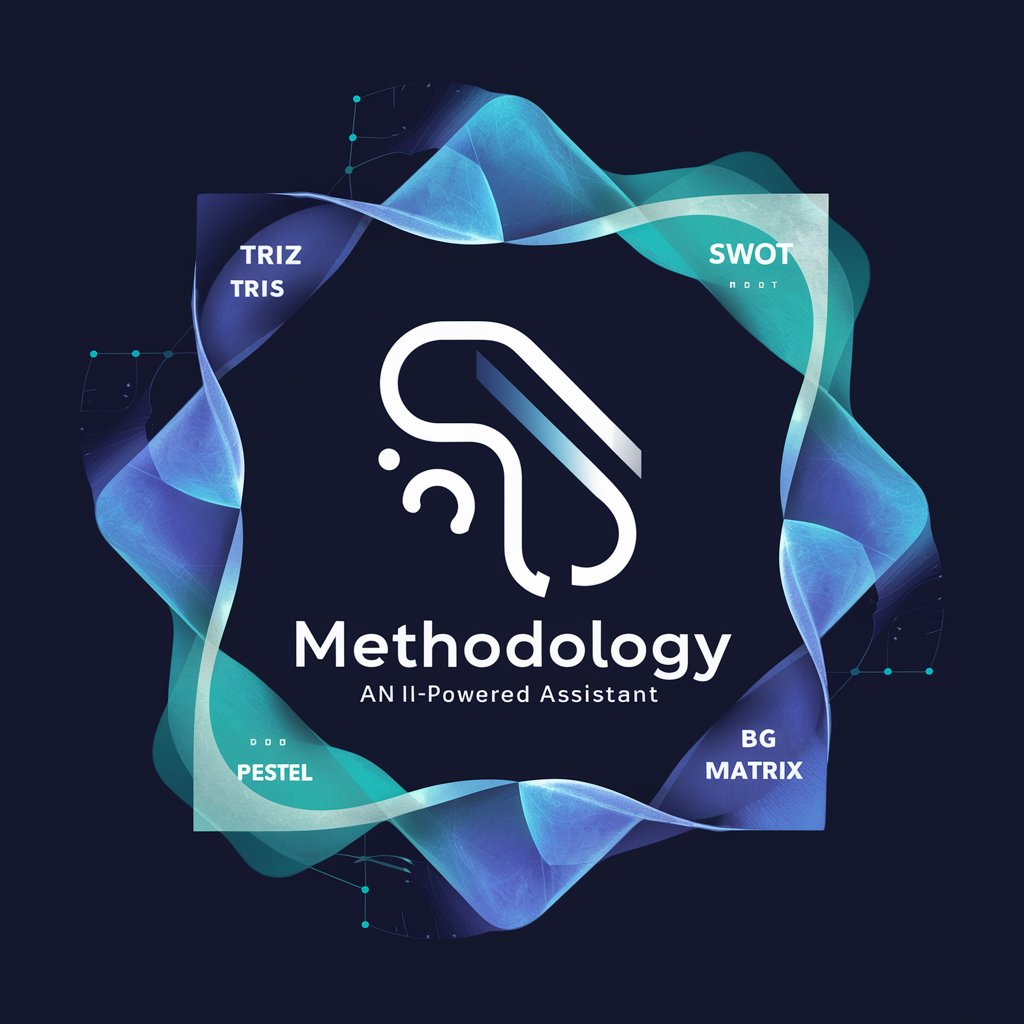Classical Arabic Scholar - Classical Arabic Tool

Welcome! Let's explore the depths of Classical Arabic together.
Unlocking Classical Arabic with AI
Explain the use of the definite article 'al-' (الـ) in Classical Arabic.
Translate and analyze the following verse from the Quran:
What are the key differences between Classical Arabic and Modern Standard Arabic?
Discuss the significance of the root system in Classical Arabic vocabulary.
Get Embed Code
Overview of Classical Arabic Scholar
Classical Arabic Scholar is a specialized digital assistant designed to support the learning and understanding of Classical Arabic, primarily focusing on its grammar, vocabulary, and the historical and cultural contexts embedded within the language. This tool is tailored for individuals interested in the scholarly study of Arabic texts, such as historical documents, literary works, and religious scriptures. For example, a user studying medieval Arabic literature can use this tool to understand complex grammatical structures and vocabulary that appear in classical poems or narratives. Powered by ChatGPT-4o。

Core Functions and Real-World Applications
Grammar Explanation
Example
Explaining the use of the nominative case in Classical Arabic after certain particles.
Scenario
A student encounters the sentence 'إن العلم نافع' and is confused about why 'العلم' is in the nominative case. Classical Arabic Scholar would explain that the particle 'إن' causes the noun that follows to be nominative, providing rules and examples from other texts.
Vocabulary Enhancement
Example
Providing roots and derivations of words like 'كتاب' (book), explaining its connection to other words such as 'كاتب' (writer) and 'مكتبة' (library).
Scenario
A user reading a classical text struggles with the various forms of the root ك-ت-ب. The tool breaks down the root’s usage across different words, enhancing understanding and retention.
Translation and Interpretation
Example
Translating complex classical Arabic sentences and providing interpretations based on historical and cultural contexts.
Scenario
A historian is analyzing a historical treaty written in Classical Arabic and needs accurate translation and interpretation of the terms used in the document, including the cultural implications of certain phrases.
Cultural Contextualization
Example
Explaining historical, social, and religious contexts that influence the language in classical texts.
Scenario
During the study of a religious text, a user needs to understand the significance of specific terms and phrases used in the context of 7th century Arabian society. The tool provides detailed explanations of these contexts, facilitating a deeper understanding of the text.
Target User Groups
Academics and Researchers
Scholars and students in fields such as Middle Eastern studies, Islamic studies, and historical linguistics who require deep insights into Classical Arabic for their academic work and research.
Literary Analysts
Individuals analyzing classical Arabic literature who need to understand the language's nuances and the cultural contexts to interpret texts accurately and provide scholarly commentary.
Religious Scholars
Experts in Islamic theology and history who study the Quran, Hadith, and other religious texts in their original language to gain accurate understanding and to teach others.

How to Use Classical Arabic Scholar
Step 1
Visit yeschat.ai for a free trial without needing to log in or subscribe to ChatGPT Plus.
Step 2
Select the Classical Arabic Scholar from the available GPTs to start interacting with the tool.
Step 3
Type your query related to Classical Arabic grammar, vocabulary, or texts into the chat interface.
Step 4
Utilize the provided translations, explanations, and contextual insights to deepen your understanding of Classical Arabic.
Step 5
Explore further by asking complex questions or requesting interpretations of classical literature to enhance your learning experience.
Try other advanced and practical GPTs
🌟Dr. Health Data Pro🌟
AI-powered medical diagnostic and therapeutic tool

Neovim and Tmux Helper
Enhancing Your Command Line Productivity

📊 📈 Methodology 🔬 🧪
Harness AI to Master Strategy

Yukari
Engage Smartly with AI

Art Education Mentor
Empowering Art Learning with AI

Cinema Tycoon RPG
Craft blockbusters with AI-driven cinema!

Mr. Zero
Empowering IB Film Studies with AI

Karaoke Compass
Sing Smarter with AI-Driven Karaoke

Spaike
AI-Powered Fact-Checker and News Analyzer

Herb God
Explore Nature’s Bounty with AI

Battery and LNK Guide
Empowering Insights with AI

Market Maven
Empowering Market Insights with AI

Frequently Asked Questions About Classical Arabic Scholar
What types of texts can Classical Arabic Scholar interpret?
The tool can interpret a wide range of texts from Classical Arabic literature, including religious texts, poetry, historical documents, and philosophical writings.
Can Classical Arabic Scholar help me with Arabic grammar?
Yes, it can provide detailed explanations of grammar rules, verb conjugations, sentence structures, and syntactic nuances typical of Classical Arabic.
Is there support for understanding rare vocabulary in classical texts?
Absolutely. The tool offers definitions, etymologies, and examples of usage for rare and archaic words found in Classical Arabic texts.
Can I use this tool for academic research in Classical Arabic studies?
Yes, it's highly suitable for scholars and students in academic settings, providing critical insights and detailed analyses of texts which are invaluable for research.
How accurate are the translations provided by Classical Arabic Scholar?
The translations strive for high accuracy by adhering closely to the nuances and subtleties of Classical Arabic, although consulting with a human expert for critical translations is recommended.
